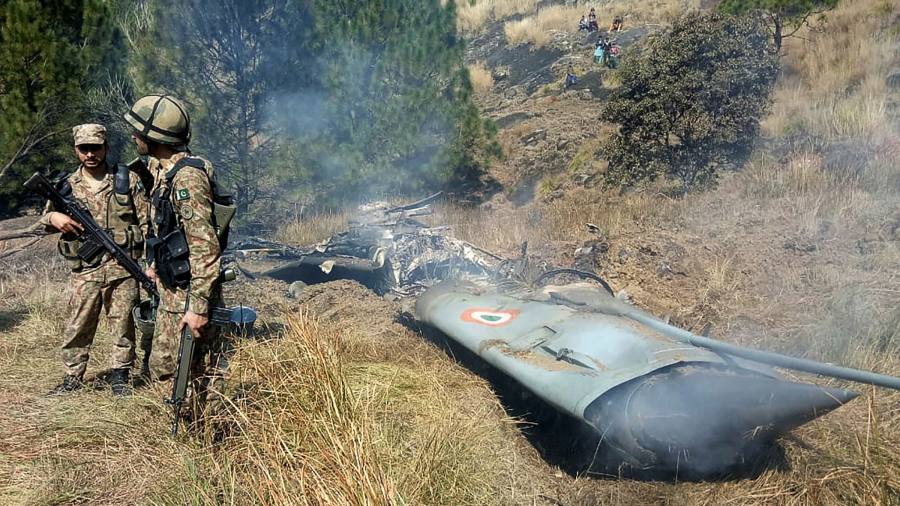[ad_1]
India and Pakistan officials are expected to meet on Tuesday to discuss a water-sharing pact, in a sign of improving relations between the nuclear-armed rivals following a ceasefire in Kashmir brokered by the United Arab Emirates.
The meeting of the Permanent Indus Commission in New Delhi, which controls the division of water from the Indus river system between the two countries, marked the latest attempt at formal re-engagement since the sides came to the brink of war over a 2019 suicide bombing in Kashmir.
New Delhi’s revocation months later of Jammu and Kashmir’s special status, under which the majority-Muslim region was stripped of its former high degree of autonomy, added another source of tension.
General Qamar Javed Bajwa, Pakistan army chief, delivered a conciliatory speech after the ceasefire was announced in February, saying last week it was time to “bury the past and move forwardâ€.
Peace would help “unlock the untapped potential†of south and central Asia, he added. Following Bajwa’s speech, Narendra Modi, India’s prime minister, made the unusual overture over the weekend of wishing his Pakistani counterpart Imran Khan a “speedy recovery†from coronavirus.
The Pakistan leader and his wife tested positive for Covid-19 on Saturday, days after the former cricket captain received his first vaccine shot.
In a further sign of rapprochement, local media said India’s foreign minister S Jaishankar was expected to meet Pakistan’s foreign minister Shah Mahmood Qureshi in Dushanbe, Tajikistan to discuss Afghanistan on March 30.
Government sources and analysts said the detente had been brokered by the UAE, which has hosted back-channel talks for months between India and Pakistan.
The UAE has been increasingly assertive in regional politics with its significant Indian and Pakistani expatriate populations, said Asfandyar Mir, a south Asia analyst at Stanford University.
“The UAE has incentives to bring the temperatures down and lower hostility in south Asia in the service of its own foreign policy agenda,†said Mir.
“They are probably seeing some real glimmer of hope,†he added. “Things are moving fast and in the direction of a thaw.â€
The UAE had issued a statement welcoming the ceasefire, saying it had “close historical ties†with both New Delhi and Islamabad and commending the “efforts of the two countries to reach this achievementâ€.
The ceasefire was announced as India faced the threat of a two-front conflict, with Pakistan in Kashmir and China over a contested Himalayan border.
In February, India and China agreed to pull back their forces after a months-long military stand-off following a brutal clash in the strategically important Galwan Valley in June that killed 21 Indian troops. China said four of its soldiers died.
[ad_2]
Source link





